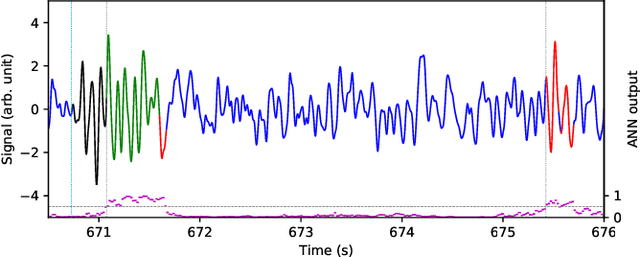The Portiloop: a deep learning-based open science tool for closed-loop brain stimulation
Paper and Code
Jul 30, 2021



Electroencephalography (EEG) is a method of measuring the brain's electrical activity, using non-invasive scalp electrodes. In this article, we propose the Portiloop, a deep learning-based portable and low-cost device enabling the neuroscience community to capture EEG, process it in real time, detect patterns of interest, and respond with precisely-timed stimulation. The core of the Portiloop is a System on Chip composed of an Analog to Digital Converter (ADC) and a Field-Programmable Gate Array (FPGA). After being converted to digital by the ADC, the EEG signal is processed in the FPGA. The FPGA contains an ad-hoc Artificial Neural Network (ANN) with convolutional and recurrent units, directly implemented in hardware. The output of the ANN is then used to trigger the user-defined feedback. We use the Portiloop to develop a real-time sleep spindle stimulating application, as a case study. Sleep spindles are a specific type of transient oscillation ($\sim$2.5 s, 12-16 Hz) that are observed in EEG recordings, and are related to memory consolidation during sleep. We tested the Portiloop's capacity to detect and stimulate sleep spindles in real time using an existing database of EEG sleep recordings. With 71% for both precision and recall as compared with expert labels, the system is able to stimulate spindles within $\sim$300 ms of their onset, enabling experimental manipulation of early the entire spindle. The Portiloop can be extended to detect and stimulate other neural events in EEG. It is fully available to the research community as an open science project.
 Add to Chrome
Add to Chrome Add to Firefox
Add to Firefox Add to Edge
Add to Edge